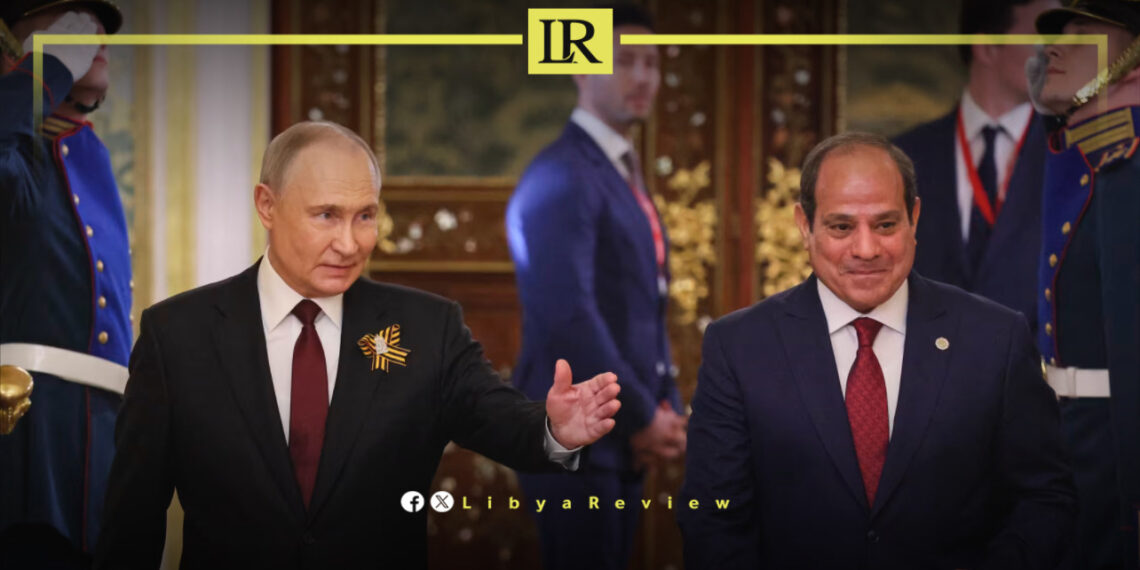Egyptian President Abdel Fattah El-Sisi and Russian President Vladimir Putin held a high-level meeting in Moscow on the sidelines of Victory Day celebrations, where they discussed key regional developments, with Libya emerging as a central point of concern.
The talks underscored the shared priorities of Cairo and Moscow in seeking political stability and security in the war-torn country.
According to the official spokesperson for the Egyptian presidency, the two leaders reviewed the latest developments in Libya, reaffirming their commitment to supporting a unified, sovereign Libyan state free from external interference and armed conflict.
For his part, President Sisi stressed Egypt’s consistent stance in favor of a diplomatic resolution to the Libyan crisis—one that supports the will of the Libyan people, ensures the withdrawal of foreign mercenaries, and restores institutions under a single, legitimate government.
He emphasized that Libya’s path to stability must be political—not military—and grounded in an inclusive national process.
Sisi also called for reinforcing international support for holding credible elections and implementing constitutional arrangements that reflect broad Libyan consensus.
Meanwhile, President Putin expressed deep appreciation for Egypt’s stabilizing role in North Africa, highlighting Russia’s full support for Egyptian diplomatic efforts in Libya. He reaffirmed Moscow’s commitment to advancing regional peace and dialogue through coordination with all parties involved in the Libyan conflict.
The meeting comes at a time when Libya’s political process faces ongoing delays and uncertainty. With the UN and other stakeholders renewing calls for inclusive elections and unified governance, both Egypt and Russia appear to be aligning their positions in favor of a negotiated roadmap.
Sisi and Putin also reiterated their broader joint commitment to de-escalating regional crises through dialogue and diplomacy. Both leaders agreed that continued coordination on Libya remains critical to preventing further fragmentation and instability in the region.


